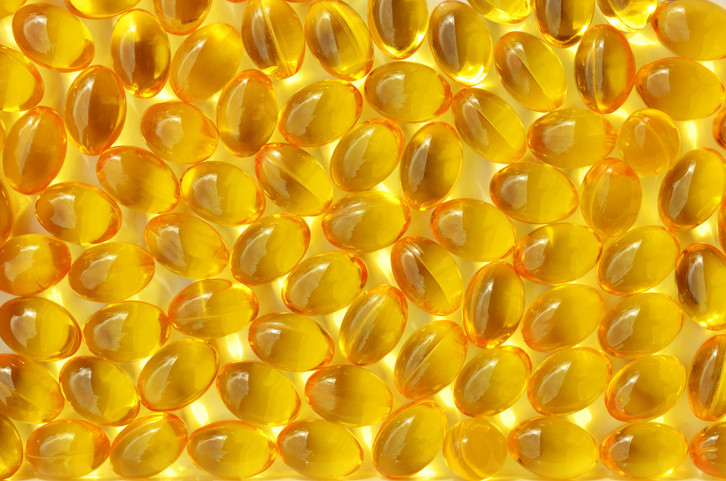
Can vitamin D supplements prevent autoimmune disease?

 

You really do not have to glance significantly to discover claims that taking vitamin D nutritional supplements is fantastic for your well being. It is intended to be good for all the things from protecting against cancer and dementia to steering clear of infections and heart illness.
Regrettably, many meant positive aspects of vitamin D dietary supplements remain unproven. Still, hundreds of thousands of men and women take vitamin D regularly, contemplating it will support avoid a wide variety of sicknesses, which include specific autoimmune problems. But does it? A new randomized, controlled study released in TheBMJ appears to be closely at that concern.
Why would vitamin D stop autoimmune ailment?
Despite the fact that the result in of most autoimmune disease is mainly not known, the primary concept is that the regulation of the body’s immune program goes awry. The immune process ordinarily defends the human body from invaders these types of as infections, and assists repair harmed tissues. When an autoimmune condition develops, the immune technique assaults its host. For illustration, with rheumatoid arthritis, immune cells attack joints, lungs, and other sections of the human body.
Investigation has proven that vitamin D can interact with immune cells, influence genes that control inflammation, and change the reaction of the immune program. So it makes perception to examine whether or not supplemental vitamin D is an helpful way to treat or protect against autoimmune sickness.
The BMJ review drew on knowledge collected throughout a substantial trial released a number of many years in the past. More than 25,000 older older people had been randomly assigned to consider
- 
- 2,000 IU of vitamin D or an identical placebo (inactive pill) daily. (This is larger than the encouraged every day volume for grown ups, but reduce than the upper limit of 4,000 IU.)
- 1,000 mg of omega-3 oil or an identical placebo day by day.


Right after an regular of 5 years, new diagnoses of autoimmune illness among research members ended up tallied.
What did the new analyze come across?
The answer may perhaps count on wherever you read or study about the BMJ study. It’s genuine that the scientists identified that grown ups having vitamin D supplements had a decreased threat of producing autoimmune disorder. But here’s what some of the more enthusiastic news headlines mentioned:
Seems good, right? But is it correct?
What does a nearer search at the review inform us?
The scientists described that
- 
- 123 folks taking vitamin D designed autoimmune illness, when compared with 155 persons in the placebo group. This signifies a 22{614fc3c32b079590f5b6a33afe99f1781dd92265c15f5c1e8aa861cac1d0c269} reduction. That seems like a lot, but the precise minimize in chance for acquiring an autoimmune sickness fell from about 12 individuals in 1,000 to 9.5 people today in 1,000.
- Rheumatoid arthritis, polymyalgia rheumatica, and psoriasis had been the most common problems. No single autoimmune illness was reliably prevented by vitamin D supplementation. Only when the numbers of all the autoimmune illnesses ended up put together did scientists see a advantage.
- The reward of vitamin D was extra obvious when only the last a few yrs of the research have been analyzed. This indicates that it usually takes a though to reward from a each day complement.
- All those assigned to obtain omega-3 fatty acids did not have a lessen danger for confirmed autoimmune disease.
- Side results have been slight and identical in all those getting dietary supplements and all those getting placebo.





This randomized research is amongst the finest to explore the influence of vitamin D supplementation on the chance of acquiring autoimmune disorder. However the review relied on self-noted circumstances, afterwards verified by health care document overview. So it’s attainable that some instances of autoimmune condition were ignored.
In addition, the review only integrated older older people (regular age 67). This is important due to the fact some of the most common autoimmune ailments, this sort of as lupus and rheumatoid arthritis, ordinarily get started in early adulthood. The effects could possibly have been diverse if the study experienced incorporated more youthful individuals.
Should really we all be using vitamin D supplements?
Centered on this study, I’d say no. For 1 detail, these results want to be verified by other unbiased scientists. And regardless of overly enthusiastic headlines, real threat reduction was just 2.5 situations out of 1,000. Hundreds of persons would need to have to just take vitamin D every day for decades to protect against a one case of autoimmune illness. Vitamin D can interact with other medications, and taking superior amounts of vitamin D can be hazardous.
The base line
Is vitamin D a protected, all-normal ponder drug that can reduce or take care of a litany of illnesses? Based on present research which is not distinct however, nevertheless I imagine it is best to retain an open mind. We may possibly uncover vitamin D does very little for the common individual but is very effective for others the trick is figuring out who is most possible to profit. For case in point, probably supplemental vitamin D will be primarily helpful for folks who have a robust family record of specific autoimmune ailments.
Ideal now, we have the most recent chapter in the tale of vitamin D. Long term research may perhaps reveal that a various dose or formulation of vitamin D could be specially helpful. Maybe most importantly, this research and many others to appear could provide a improved comprehending of the role of vitamin D in the improvement of autoimmune ailments.
Observe me on Twitter @RobShmerling
As a company to our visitors, Harvard Wellness Publishing offers obtain to our library of archived material.
Please observe the date of previous review or update on all posts. No articles on this site, regardless of day,
should really at any time be utilised as a substitute for immediate health care information from your medical doctor or other certified clinician.





